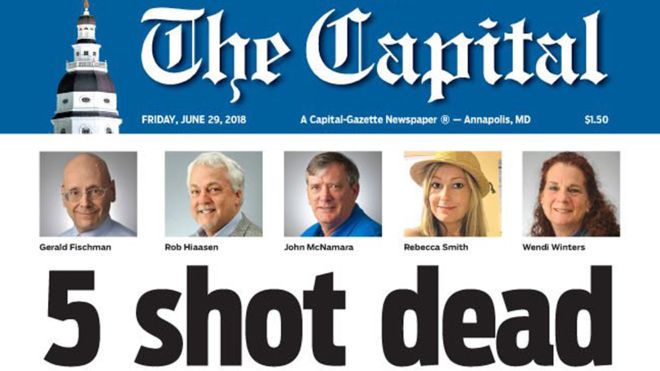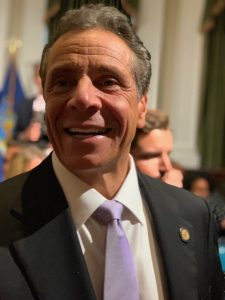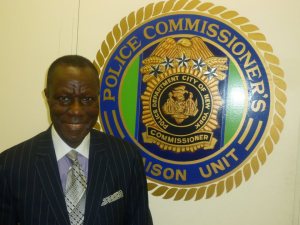By Uchenna Ekwo
Reactions to the mass shooting at the newsroom of the Capital Gazette in Annapolis, Maryland last Thursday were expectedly mixed. With four journalists and staff member of the Capital Gazette dead, some media pundits were quick to blame the shooting on Trump’s rhetoric about “fake news.” A Reuters reporter accused the president of having blood on his hands, followed by similar accusations from a New York Times journalist, a White House correspondent, an investigative reporter from Politico, and other high-profile media personalities.
In February last year, President Trump called out several news media outlets namely New York Times, NBC, ABC, CBS, and CNN and described them as the “enemy of the American People”. Capital Gazette was not on Trump’s list. While demonizing the media is unacceptable in a democratic society, blaming Trump for the incident does not solve the larger problem of the perennial ignorance of the operations and role of the news media. After all, Trump is not the first US president to attack the news media. In 1972, President Richard Nixon told his National Security Adviser, Henry A. Kissinger, “The press is the enemy.” Private Citizen and shooting suspect, Jarrod Ramos reportedly had some grievances against Capital Gazette. The antipathy towards the news media is driven by one common motive – a rejection of the intrusive nature of the news business. A president or private citizen does not want media exposure of some unsavory aspects of their life. Trump dislikes the media because journalists insist on being watchdogs and not lapdogs of the administration. But as a private citizen he enjoyed the glow and splendor of the media blitz that actually projected him to the world but as president, an intrusive news media follows every comment or action on behalf of the American people. Governments want to keep secrets and the media, on behalf of the people, demand openness. Indeed, Trump is not alone. Every leader has a dose of ego and to continuously challenge that pride in the media can be frustrating for many leaders that lack humility.
In a similar vein, the alleged shooting suspect, Ramos was worried about his reputation. Several news reports indicated that Ramos’ animus towards the newspaper revolved around the publication of a defamatory story about him and the news organization’s invasion of his privacy. Instead of confronting the source of the story reported by the newspaper, Ramos chose to attack the institution – Capital Gazette.
That’s the scary part. The country faces the challenge of mass shooting in schools and due to political posturing between the left and right, the problem remains unresolved and may never be. The violent invasion of the newsroom is another dimension that might see anyone take up arms if he or she disagreed with the editorial direction of news organizations. That will be a new level indeed, especially under the current polarized media environment that fuels deep division between conservative media outlets and progressive news organizations. If copycats fuelled the frequent mass shooting at schools, we should be alarmed about the likelihood that Ramos may have opened another footpath for disgruntled elements in society to seek fame at the expense of unsuspecting victims.
One other point that the shooting at the newsroom raises is the need for news organizations to try to explain its operations, functions, and limitations. It is unfortunate that many citizens think the news media possesses magical powers to rein in on politicians especially those of them who represent themselves instead of their constituents. There is a limit to what the news media can do in a climate that truth has become relative. For example, the majority of Trump supporters believe that journalists are standing in the way of the president from pursuing his agenda. Of course, that is not true. Regardless of news reports about some actions and inactions of the administration, the country remains strong. If the media had the perceived magical powers, why did all the opinion polls fail to capture Trump’s victory in 2016?
Clearly, the media is not the enemy of the people. In theory and practice, the media should be the defender of the ordinary people. However, the extreme commercialism in corporate news organizations often questions the legitimate aspiration to defend the less privileged in society. At the moment, access to the news media is mostly guaranteed to the powerful and the rich. To that extent, ordinary people can resent some journalistic practices that only cater to politicians and corporations.
But, the approach adopted by Ramos in attacking innocent journalists in the newsroom is certainly the wrong method to demonstrate grievance to a news organization. There are different nonviolent ways to seek redress. Above all, media practitioners must do better in explaining their roles rather than depend on false narrative and arrogation of mythical powers.
Dr. Uchenna Ekwo is president of Center for Media & Peace Initiatives, New York @UcheEkwo







